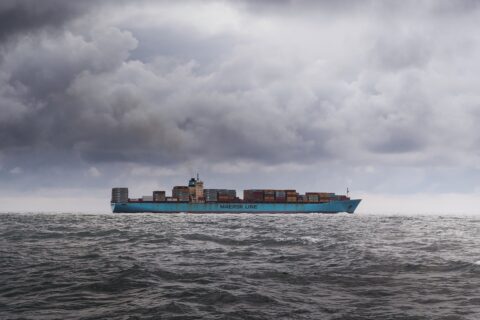International freight shipping can be complex as it requires you to understand the rules and regulations of the concerned countries and follow the procedures duly. Well established businesses generally have their shipping process streamlined, but the small businesses and SMBs may still struggle with the complexity of freight shipping.
Through this post, we will answer some of the most commonly asked questions about the subject. But if you are new and looking to understand more about the basics of freight shipping, read our post – Freight Shipping for Dummies
How can I ship goods? What are the options available for freight shipping?
Irrespective of the weight or volume of the cargo, you can ship your goods to other countries, provided your cargo type is not prohibited or restricted. Cargo can be shipped by air, sea or road – depending on the volume of the cargo, shipping time in hand and cost or budget you can choose one or multiple modes for your freight shipping.
Next, depending on the volume of goods, you can choose from FCL (full container load), LCL (less than container load), FTL (full truckload) or LTL (less than truckload). If the volume of your goods is not enough to fill an entire container, you can opt for LCL / LTL. For making this seamless, you can appoint a freight forwarder or a 3PL like ProConnect Integrated Logistics to handle all the shipping hassles for you.
How can I calculate the cost of freight shipping?
The cost of freight shipping depends on multiple variables like type of goods, mode of shipping opted, weight and dimensions of the cargo, shipping distance, cargo value etc. The cost would also vary based on what you choose – LTL, LCL, FTL / FCL or flatbeds. Here’s a more detailed post on How To Calculate Cost Of Freight Shipping.
What do Freight classification and NMFC Number mean?
All goods that can be shipped are broadly categorized under 18 freight classes. Freight classification is based on dimensions, weight, value, liability and the ease of handling of the goods. Freight classification was developed by National Motor Freight Traffic Association (NMFTA) in order to standardize the pricing of freight shipping.
NMFTA has assigned a unique number to each product that can be shipped. This NMFC number is used to refer to a freight class of a product so that the freight shipping charges can be calculated.
Is it necessary to estimate the weight and dimensions of cargo?
Estimating the weight and dimensions of the cargo is a good indicator of cost of freight shipping. However, they should be estimated carefully. Accurately measuring the length, width and height is crucial to choosing the right amount of space, as inaccurate measurements could lead to extra costs.
Is Freight Packaging important?
Absolutely! Many countries have their own guidelines to packing goods when importing or exporting. It is important to follow those guidelines, not just for the sake of rules, but also for the safety of your cargo. Goods in transit go through many handling points and are prone to damage, theft or simply falling off the package – which could lead to unnecessary loss to you.
When shipping goods that are fragile in nature, it is crucial to pack them with special attention and material to avoid breakage, damage in transit.
What is Bill of Lading (BOL)?
A Bill of Lading, BOL, is a document, a contract between the shipper and the freight carrier that encapsulates all the details to process a shipment correctly. A BOL includes number of units, shipment date, weight, etc. of the shipment. The BOL is generated and presented to the carrier, indicating that the cargo has been picked up, with a copy being with the shipper himself.
Can I determine the transit time of my shipment?
Freight shipping relies on many environmental, federal and other related circumstances, therefore the number of days a shipment takes to reach its destination cannot really be guaranteed. For example, several shipments across the world were delayed when the world was under lockdown, which was an unforeseen situation. Usually the shipping services can be trusted on the timeline that they share.
Should I appoint a freight forwarder or a 3PL for my shipments?
Many big companies have their own logistics department that handle the freight shipping in-house, however, there are many big and small companies that appoint a freight forwarder or a 3PL like ProConnect Integrated Logistics to save on their logistics operations costs, resources and the hassles.
ProConnect Integrated Logistics has a wide agent network that can help you with your freight shipping needs from and to any part of the world. Not sure? Talk to us and evaluate our quote.





 APP DOWNLOAD
APP DOWNLOAD
It’s great that you mention the different types of shipping container loads. Knowing what you want would be important to ensure you choose the right one. My cousin needs to choose a shipping container, so I’ll share this information with him so he chooses the right one.